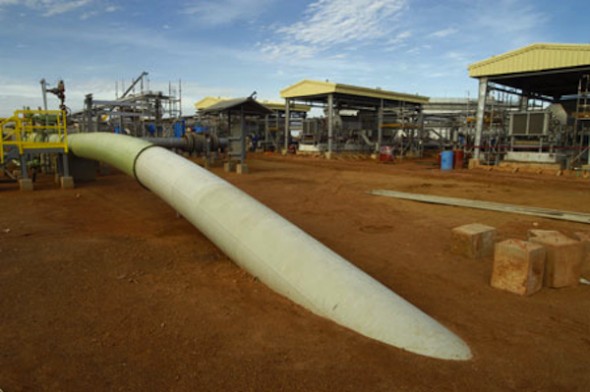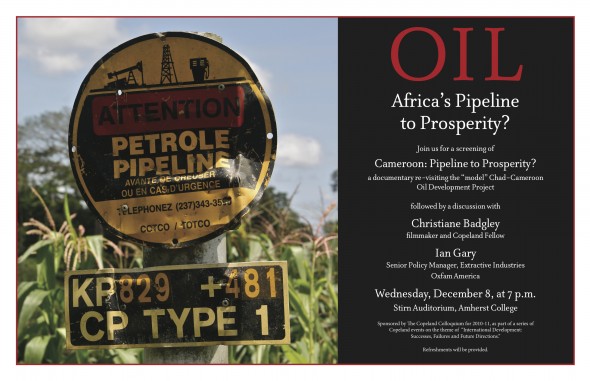By the numbers: giving stories the attention they deserve
“By the Numbers – the fight for oil and mining company transparency,” is a must-read item from Oxfam America’s Politics of Poverty blog (the post is also pasted below).
Some stories don’t get the attention they deserve. Important issues that are hard to translate into snappy news items are more often than not overlooked in today’s shallow “news” environment.
Remember the U.S. financial reform laws passed back in 2010? You know, the Dodd-Frank Act intended to prevent another financial meltdown? Well, one part of that reform package that hardly got any mainstream news attention was Section 1504, one of several “specialized corporate disclosure” provisions in Dodd-Frank. This item, also known as the Cardin-Lugar provision, was signed into law by President Obama in July 2010.
As the transparency advocacy organization, Publish What You Pay, explains, “The first of its kind, this law requires oil, gas and mining companies registered with the U.S. Securities and Exchange Commission (SEC) to publish their payments to the U.S. federal government and foreign governments as part of their annual reports to the SEC.”
Pipeline oversight: Are independent monitoring panels effective, truly independent?
Over the past few weeks I’ve been scrutinizing documents on the safety and oversight of the Chad-Cameroon pipeline. As I wrote in an initial blog post, the ruptured ExxonMobil pipeline and subsequent oil spill in the Yellowstone River in Montana got me thinking about similarities with the ExxonMobil pipeline that crosses no fewer than 17 major rivers in Cameroon. I then wrote a follow-up post on pipeline oversight (or lack of).
So I was thrilled when I found out that Oxfam America was preparing a new report on the monitoring of controversial oil and gas projects featuring the Chad-Cameroon pipeline as one of its case studies. The report, Watching the Watchdogs, was launched yesterday in Washington, D.C. Among the speakers at yesterday’s panel were Jacques Gérin and Nadji Nelambaye who were both involved with monitoring the Chad-Cameroon pipeline.
OIL: Africa’s pipeline to prosperity?
Ian Gary, Senior Policy Manager for Extractive Industries at Oxfam America, joined me at Amherst College on December 8th for a screening and discussion on Africa’s oil challenges. Gary, who co-authored, Chad’s Oil: Miracle or Mirage? in 2005, reminded us that Africa’s oil boom will provide more that $400 billion to African governments through 2019. By 2015 the U.S. will get 25% of its imported oil from Africa.
Chad’s oil, to the surprise of no-one really, has hardly worked miracles. The country is no better off than it was before oil production began. Most economic indicators are down. The people in the oil-producing region are much worse off than they were before the oil boom. Farmers for the most part, many in the Doba Basin area are no longer able to access their lands, now dotted with drill pads and crossed by pipes and high tension cables. In 2010, the World Bank admitted that “in reality, close to 50 percent of expenditures has gone to the military.”
Chad, once the “model” for oil development (although one can argue that Chad was only a “model” until oil began to flow), has now joined the ranks of examples to avoid. The resource curse strikes again. Ghana is next, with its first oil shipping on December 15th. Will Ghana go the way of Chad or will the country get it right this time? Although the Ghanaian government has made pledges and promises, recent news suggests that there is some cause for concern (read a few of the latest articles posted on Ghana Oil Watch to get a sense of the troubles on the horizon).





